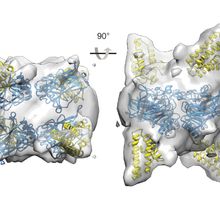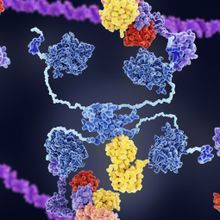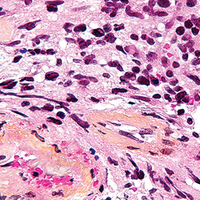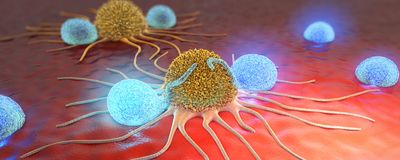Login
Subscribetumor suppressor

Fusion with Spider Silk Increases Anticancer Protein’s Stability
Dan Robitzski | Jul 5, 2022 | 2 min read
Scientists found that combining the notoriously flimsy anticancer protein p53 with a domain from a spider silk protein resulted in a more stable hybrid that’s more potent and easier for cells to synthesize.

p53 Unleashes Endogenous Retroviruses to Tackle Tumors: Study
Marcus A. Banks | Jul 29, 2021 | 4 min read
New experiments suggest the famous tumor-suppressing protein uses viral elements lingering in the genome to get cancerous cells to announce their presence to the immune system.

Why Is Cancer More Common in Men Than in Women?
Jef Akst | Apr 1, 2019 | 4 min read
The molecular processes that lead males to be more susceptible to the disease are only beginning to come to light.

In Their Earliest Days, Embryos Record Their Environments
Kerry Grens | Oct 1, 2018 | 4 min read
Methylation patterns at so-called metastable epialleles in the genome stamp a memory into each of our cells.

Elephants Revived a “Zombie” Gene that May Fend Off Cancer
Kerry Grens | Aug 15, 2018 | 1 min read
DNA damage kick-starts what was once a defunct duplicated gene, which kills off injured cells.
